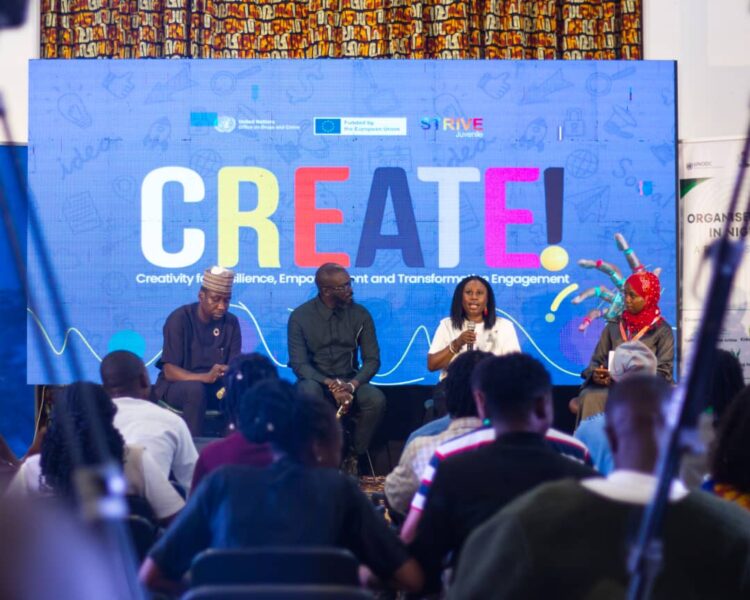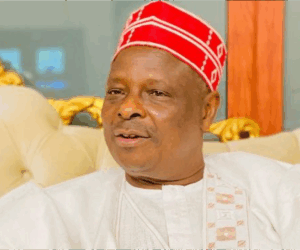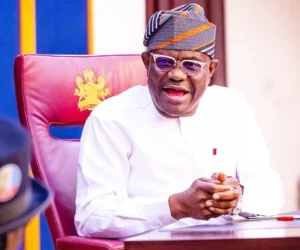1
Jide Oyekunle
The United Nations Office on Drugs and Crime (UNODC) and the World Intellectual Property Organisation (WIPO) have emphasised the need to empower young people through creativity, innovation, and awareness of intellectual property (IP) rights as tools for peacebuilding and sustainable development.
The call was made on Friday in Abuja during the panel discussions on “ Creativity for Resilience, Empowerment and Transformative Engagement.”
At the closing ceremony of the 9th Abuja International Photo Festival, featuring young photographers and filmmakers
The UNODC Representative in Nigeria, Cheikh Touré, revealed that the creative industry in Africa generates over $36 billion annually, stressing that young people who understand and protect their intellectual property can become key players in this growing sector.
Toure explained that the UNODC’s mandate, which includes anti-corruption, drug control, cybercrime, and organised crime conventions, increasingly adopts a youth-centred approach to ensure long-term societal impact.
“Africa’s time is now. But when you look closely, our greatest potential lies with the youth,” he said. “It is important not to design programs for them, but with them. The saying ‘Not for us, without us’ must guide every development effort.”
Also speaking at the event, Mr Oluwatobiloba Moody, Head of the World Intellectual Property Organisation (WIPO) in Nigeria, encouraged young creatives to acquire knowledge of intellectual property laws to safeguard their work and benefit financially.
“When you create something, whether a photograph, a film, or a song, you automatically own rights over that work,” he explained. “These include moral rights, which ensure you are credited and your work is not altered, and economic rights, which allow you to earn from your creations.”
He noted that these rights last throughout the creator’s life and 70 years after death, and that understanding them enables young people to make informed business decisions.
In his closing remark, the Convener and founder of Abuja International Photo Festival, Mr Efe Osaze, described the event as a universal language that transcends borders and biases, with the ability to connect people and inspire conversations that lead to change.
He expressed deep satisfaction with the success of this year’s edition, describing it as “a wonderful three days of engagement, panel sessions, workshops, and exhibitions.”
Over the past three days, we have engaged with artists, photographers, and filmmakers from Nigeria, Africa, and other parts of the world to examine how imagery can help make the world a better place,” he said.
“Everything we have done in the past few days has been a rallying call to young people to use their creativity and imagery to hold the government accountable and to engage governance stakeholders,” he noted.
He emphasised the festival’s focus on addressing social issues such as crime, drug abuse, and misinformation, noting that while these challenges may not be completely eradicated, visual storytelling can play a vital role in reducing them.
The three-day event was supported by the United Nations Educational, Scientific and Cultural Organisation ( UNESCO), United Nations Office on Drugs and Crime (UNODC), Embassy of Sweden Abuja, Strive Juvenile, the European Union, einao Solutions, Art For Humanity Foundation.
Others are Thought Pyramid Art Centre, The Osa Okunbo Foundation, MAUBBYS and Bubblintea.








